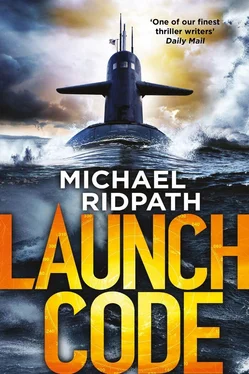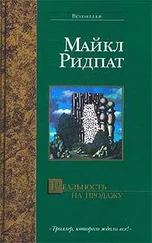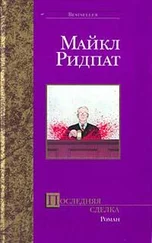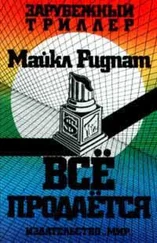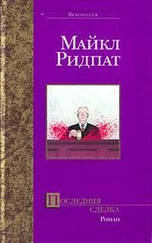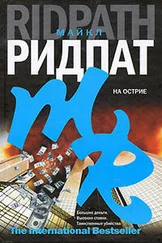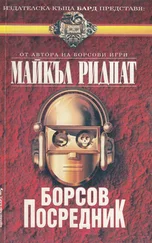I had been discharged from the Navy, and spent a couple of weeks at home with my parents before joining Donna in New York. My mother had been happy to accept my explanation that I couldn’t divulge why I had left early, and that the discharge was indeed honourable. But my father had not taken my leaving the Navy well, especially when he realized that there was little chance that I would come and work with him on his newspaper. He was a curious newspaperman and he also felt that I should be able to trust my own family; he wanted to know all the details.
I held out.
But now, even more inconsistently, I was about to tell a total stranger everything.
Our three days coincided with the twenty-fourth International Conference on High Energy Physics, which was taking place in Paris that year. The plan, as explained to us by Pat Greenwald, was that we would saunter past a particular bench in the Jardin at 12.40 for each of the three days. If and when Donna saw Irena Boyarova, whom she would recognize, sitting there reading a book in English, we would place ourselves next to her and strike up a conversation, asking her about the book. If she was reading a book in Russian, we would walk on by.
I suggested that we spend the half hour beforehand going back and forth on the Metro to make sure no one was following us. We did this, but we found it impossible to determine whether we were being followed or not in the crowded foreign city.
The bench was just a few yards away from the Medici fountain. There was no sign of the Russian on the first day, but on the second the bench in question was occupied by a small woman with short greying hair wearing a shapeless brown coat. She was reading The Thornbirds .
‘There she is,’ said Donna.
We paused in front of the bench. ‘ Il y’a quelqu’un ici? ’ Donna asked the woman.
The Russian smiled. ‘ Non ,’ she said. ‘ Asseyez-vous .’ Her face was small and round, as were her blue eyes, which glanced at us quickly, and then went back to her book.
Donna and I unpacked a simple picnic from the bag Donna was carrying — bread, cheese and a couple of oranges — and began to eat. While we had both felt a sense of excitement at these meeting preparations over the previous couple of days, now I wasn’t so sure. This was all too much like a John le Carré novel. I didn’t like to think of the Russian physicist as a spy, and I certainly didn’t like to think of myself as one.
It was cool on the bench; the sunshine that reached us was filtered by the chestnut trees above us. All three of us were hunched in our coats. After we had been sitting for a couple of minutes, Donna turned to her neighbour.
‘How do you like that book? It’s one of my favourites.’
‘Is it? Oh, good,’ said the woman in a heavy Russian accent. ‘It was recommended to me by a friend. But I have only just started it.’
‘Are you Russian?’ said Donna. ‘You sound Russian.’
Although we were not assuming that anyone would be within listening range, Pat Greenwald had suggested that in the first couple of minutes of conversation we should talk as if we had just met, so that we would be acting that way to distant watchers.
Soon Donna and Irena were chatting happily. Donna had introduced me, and we were sharing our lunch with her.
‘So you have something to tell me?’ Irena Boyarova asked me with a smile. ‘Something about how your nuclear submarine was ordered to fire its missiles and didn’t?’
‘That’s correct,’ I said. And I told her in the vaguest terms what had happened.
She was listening closely. But when she started asking more detailed questions about the launch procedure, I demurred. ‘I don’t want to give away any secrets, here,’ I said. ‘I just want you to know what happened.’
‘And thank you for that,’ said Irena. ‘We have a friend, Pavel, the brother of one of my colleagues, who is the commander of a Russian nuclear submarine. I have spoken to him and he is very interested in what you have to say. He tells us that in our country the navy believes that it is impossible to launch nuclear missiles without proper authorization, and he says that the Soviet navy believes that is true of your navy as well. Pavel is not so sure. He says we need to be able to convince people that in certain circumstances all the safeguards and checks will not work. But to do that, we need details.’
‘I told Pat Greenwald I cannot give away any Classified information.’
‘You have done that already,’ said Irena. ‘And I am not interested in technical details about your submarine or its missiles. But details about weaknesses in the launch procedure are really important. What’s the risk? It’s not as if the Soviet navy can disrupt the launch orders from outside your submarines?’
I hesitated. Irena was absolutely right; although the launch procedures were top secret, knowledge of them would not put any US submarine at risk. And the whole point of what I was doing, and the thrust of the XO’s argument, was that the more the Russians understood about how the US launched nuclear missiles, the less likely they would be to retaliate following an accidental launch.
‘Will I ever meet this Pavel?’ I said.
Irena smiled. ‘Perhaps. I hope so. One day, maybe.’
I liked the idea of this Russian officer who had come to the same conclusion I had, although I doubted Pavel was his real name.
‘Are you going to give this information to the KGB? Or the Soviet high command?’
‘We will get it to one or two generals who are sympathetic to our cause. Then they can pass it on. In the Soviet Union, the only way to achieve any nuclear disarmament is by persuading those in power that it is in their best interest and the motherland’s. And I really believe we can do that. In a few years’ time I believe we will see the Soviet Union reducing its nuclear weapons — if the US government changes its tune and is prepared to do the same. Your information will help us get to that point, but only if we have the details.’
I hesitated; I wasn’t convinced that the details were relevant, but then I could see that giving them would furnish my story with credibility, and ultimately that was what was important. They would be of no help to a Soviet fast-attack sub creeping up on my shipmates in the Alexander Hamilton , of that I was certain.
So I told her the whole story.
She was impressed. When I was done, she smiled and touched my arm. ‘Thank you. For what you did. I thank you on behalf of the Soviet population. If you had not had the courage to kill your friend, my country would have been destroyed.’
This thanks from an enemy affected me unexpectedly. I meant to reply, but found I couldn’t. In the end, ‘thank you’ in turn was all I could manage.
‘I must go back to my conference,’ said Dr Boyarova. ‘There is a chance that one of my compatriots may be watching us. If they are, they won’t be able to identify who you are until you get back to your hotel. So take your time and, if you can, give them the slip.’ Irena smiled. ‘I think I irritate them: I make it a habit to speak to random strangers wherever I go — they can’t follow all of them!’
‘We’ll do that,’ I said.
‘Until we meet again, which I hope we do.’
‘Goodbye,’ I said, unsure we would ever see each other again.
‘Do you think she’s a spy?’ Donna asked, as we wended our way through the little streets around the church of Saint-Sulpice.
‘No,’ I said. ‘She seemed genuine to me.’
‘She was very nice.’ Donna threaded her hand in mine. ‘I hope I haven’t gotten you into trouble.’
‘Don’t worry about it. I’ve thought this through. Even if the KGB do hear about the near-launch, that’s a good thing, isn’t it? If anything, they will be more able to pass it on to the Soviet high command than Irena would be.’
Читать дальше
